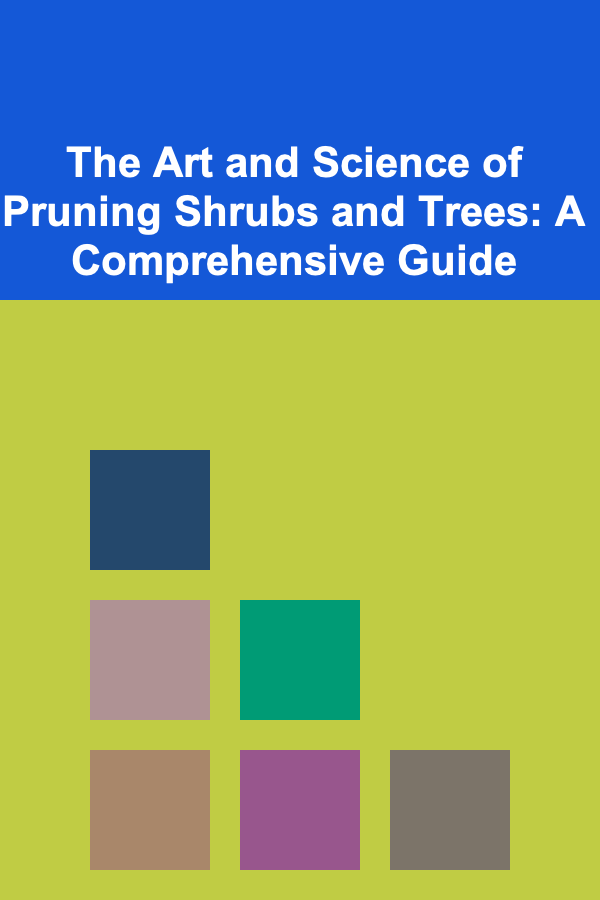
How to Adapt Your Exam Study Planner for Different Exam Formats
ebook include PDF & Audio bundle (Micro Guide)
$12.99$11.99
Limited Time Offer! Order within the next:

When preparing for exams, one of the most critical elements of success is a well-structured study plan. However, it's not enough to simply create a study schedule; you must also tailor your plan to the specific format of the exam you are preparing for. Different exams require different approaches, and adapting your study plan to suit the format of the exam can make a significant difference in your performance.
This article will guide you on how to effectively adapt your exam study planner for various types of exams. We will explore how to modify your study approach based on whether you're preparing for multiple-choice exams, essays, practical exams, or open-book exams. Understanding the nuances of each format will help you focus your efforts, optimize your time, and increase your chances of success.
Understanding Different Exam Formats
Before delving into how to adapt your study planner, it's important to understand the various exam formats you might encounter:
1. Multiple-Choice Exams
Multiple-choice exams consist of a series of questions with several possible answers, where you must select the correct one. These exams test your knowledge, recall, and sometimes, your ability to distinguish between similar concepts.
2. Essay Exams
Essay exams require you to write detailed, structured responses to questions. These exams typically assess your ability to synthesize information, argue a point, and express your thoughts clearly and logically.
3. Practical Exams
Practical exams assess your ability to apply knowledge and skills in a real-world or simulated setting. These exams might include labs, performance tasks, or technical demonstrations.
4. Open-Book Exams
Open-book exams allow you to refer to your notes, textbooks, or other materials while completing the exam. These exams test your ability to apply knowledge and analyze concepts, often requiring critical thinking.
5. Oral Exams
In an oral exam, you must respond verbally to questions posed by an examiner. The exam evaluates your ability to articulate your understanding of the subject matter and communicate effectively.
Each of these formats requires a different approach to studying, and you must adapt your study planner accordingly.
Adapting Your Study Planner for Multiple-Choice Exams
Multiple-choice exams focus on assessing your ability to recall facts, concepts, and details. These exams may require you to know specific information and distinguish between similar options. Here's how to adapt your study planner for multiple-choice exams:
1. Focus on Key Concepts and Facts
Since multiple-choice exams often test factual knowledge, it's crucial to focus on learning key concepts, definitions, and facts. Use active recall techniques, such as flashcards, to help you remember important details. Flashcard apps like Anki or Quizlet can be particularly helpful for this purpose.
2. Practice with Sample Questions
The best way to prepare for multiple-choice exams is to practice with past exams or sample questions. By doing so, you familiarize yourself with the format and learn how to identify the right answers quickly. Try to simulate exam conditions by timing yourself and answering questions under pressure.
3. Master Elimination Techniques
In multiple-choice exams, elimination techniques are incredibly helpful. If you're unsure of the correct answer, try to eliminate obviously incorrect options first. This narrows down your choices and increases the chances of selecting the right answer.
4. Review Your Mistakes
When practicing multiple-choice questions, take note of any mistakes you make and review them carefully. Understanding why a particular answer was wrong helps you avoid similar errors in the future. Consider revisiting the study material related to those questions.
Sample Study Plan for Multiple-Choice Exams:
- Week 1-2: Focus on reading through textbooks and class notes, highlighting key concepts.
- Week 3: Practice answering multiple-choice questions, making sure to focus on your weak areas.
- Week 4: Continue practicing with timed tests and review your mistakes after each practice session.
Adapting Your Study Planner for Essay Exams
Essay exams require you to write structured and coherent responses, often in a limited amount of time. These exams assess your ability to analyze, synthesize, and articulate your thoughts clearly. Here's how to adapt your study planner for essay exams:
1. Practice Writing Essays
To prepare for an essay exam, practice writing essays on various topics within the subject. Start by reviewing past exam questions or prompts and writing essays in response. This will help you get used to organizing your thoughts and structuring your essay within the time limit.
2. Understand the Marking Criteria
Essay exams often have specific marking criteria, such as clarity of argument, depth of analysis, and coherence. Review any available rubrics or guidelines to understand how your essays will be assessed. Focus on addressing all parts of the question and developing a clear argument.
3. Create Outlines
Before writing your full essay, spend time creating an outline. This will help you organize your thoughts and ensure that your essay has a logical flow. A clear outline can also save time during the exam by providing a roadmap for your writing.
4. Develop Your Writing Skills
Essay exams test not only your knowledge but also your writing skills. Work on improving your ability to write clearly and concisely. Practice writing under timed conditions to simulate the exam experience.
Sample Study Plan for Essay Exams:
- Week 1-2: Review the key concepts and theories related to the exam and practice writing essays on various topics.
- Week 3: Focus on improving your writing skills by working on structure, argumentation, and clarity.
- Week 4: Take timed essay-writing practice exams and refine your ability to work under pressure.
Adapting Your Study Planner for Practical Exams
Practical exams test your ability to apply knowledge and skills in a real-world or controlled environment. These exams might require you to perform tasks, solve problems, or demonstrate hands-on skills. Here's how to adapt your study planner for practical exams:
1. Prioritize Hands-On Practice
The best way to prepare for practical exams is through hands-on practice. Whether it's laboratory work, technical demonstrations, or simulations, spend as much time as possible practicing the skills you'll need for the exam. Focus on mastering the techniques and procedures that are likely to be tested.
2. Simulate Exam Conditions
If possible, try to simulate the exam environment by practicing under timed conditions or in settings that resemble the exam. This will help you become comfortable with the pressure and ensure that you are able to complete tasks efficiently during the actual exam.
3. Review Procedures and Protocols
Practical exams often require you to follow specific procedures or protocols. Make sure to review any standard operating procedures (SOPs) or guidelines relevant to the tasks you'll be performing. This will help you avoid mistakes and complete tasks correctly.
4. Focus on Problem-Solving Skills
Many practical exams test your ability to solve problems in real-time. Practice problem-solving by working through case studies or scenarios that may be similar to what you could encounter during the exam.
Sample Study Plan for Practical Exams:
- Week 1-2: Review procedures, protocols, and relevant skills. Spend time practicing hands-on tasks.
- Week 3: Continue practicing under realistic exam conditions and refine your technique.
- Week 4: Focus on problem-solving and troubleshooting exercises.
Adapting Your Study Planner for Open-Book Exams
Open-book exams allow you to refer to your notes and textbooks during the exam, which means you don't have to memorize everything. However, they still require preparation. Here's how to adapt your study planner for open-book exams:
1. Familiarize Yourself with Your Materials
Since open-book exams allow you to access materials, the key to success is knowing exactly where to find the information you need quickly. Organize your notes, textbooks, and other resources so you can easily navigate them during the exam.
2. Focus on Understanding Rather Than Memorization
Open-book exams often focus more on application and analysis rather than rote memorization. Therefore, spend time understanding key concepts, theories, and frameworks so you can apply them effectively during the exam.
3. Practice with Application-Based Questions
To prepare for an open-book exam, practice answering questions that require you to apply the information you have in your materials. This will help you get used to finding the relevant information quickly and applying it in a meaningful way.
4. Organize Your Materials Efficiently
Create an index or outline of your materials so that you can quickly locate key concepts during the exam. This will save you valuable time when answering questions.
Sample Study Plan for Open-Book Exams:
- Week 1-2: Organize and review your materials, focusing on understanding core concepts and frameworks.
- Week 3: Practice application-based questions and refine your ability to find relevant information quickly.
- Week 4: Take practice exams and focus on managing your time effectively during the open-book exam.
Adapting Your Study Planner for Oral Exams
Oral exams test your ability to communicate your knowledge verbally. The focus is on how well you articulate your understanding of the subject. Here's how to adapt your study planner for oral exams:
1. Practice Speaking Aloud
To prepare for an oral exam, it's essential to practice speaking about the material. This will help you become comfortable articulating your thoughts clearly and confidently. Consider speaking with a study partner or recording yourself to evaluate your performance.
2. Develop Clear and Concise Responses
Oral exams often require you to answer questions succinctly. Practice formulating clear and concise responses that address the question directly. Avoid rambling or over-explaining, and focus on giving structured, focused answers.
3. Simulate Oral Exam Conditions
Try to simulate the oral exam environment by practicing with a peer or mentor who can ask you questions. This will help you get used to the pressure and improve your ability to think on your feet.
4. Prepare for Follow-Up Questions
In oral exams, follow-up questions are common. Prepare for potential follow-up questions by thinking critically about the material and considering the possible directions your responses could take.
Sample Study Plan for Oral Exams:
- Week 1-2: Review material thoroughly and practice speaking aloud, explaining concepts clearly.
- Week 3: Continue practicing with a study partner or mentor, simulating oral exam conditions.
- Week 4: Focus on refining your responses, working on clarity, and preparing for follow-up questions.
Conclusion
Adapting your study planner to suit different exam formats is essential for achieving success. Whether you're preparing for a multiple-choice exam, an essay exam, a practical exam, or an oral exam, tailoring your study plan ensures that you focus on the right skills and techniques for each exam format. By practicing strategically, understanding the format's requirements, and managing your time effectively, you can optimize your exam preparation and perform at your best.
Reading More From Our Other Websites
- [Home Rental Property 101] How to Successfully Rent Out a Vacation Property
- [Organization Tip 101] Top Benefits of Using Window Insulation Film for Home Improvement
- [Organization Tip 101] How to Host an Organized Craft Night with Friends
- [Organization Tip 101] How to Create an Inviting Dining Area for Entertaining
- [Home Renovating 101] How to Combine Deck Building and Renovation with Pet-Friendly Landscaping
- [Home Cleaning 101] How to Deep Clean Your Kitchen in Under an Hour
- [Home Lighting 101] How to Add Vintage Lighting Pieces to Enhance Your Home's Charm
- [Star Gazing Tip 101] Celestial Calm: How Stargazing Enhances Your Meditation Practice
- [Weaving Tip 101] Weaving Your Way to a New Passion: Tips, Tools, and Inspiration for First‑Timers
- [Home Lighting 101] How to Choose and Install Flush Mount Lights for a Modern Look

How to Incorporate Eco-Friendly Decorations into Your Holiday Design
Read More
How to Make Your Home Smell Fresh and Inviting During a Showing
Read More
How to Protect Your Home from Fleas and Ticks
Read More
How to Recognize and Treat Pet Stress
Read More
How To Interpret Your Health Risk Based on Genetics
Read More
The Art and Science of Pruning Shrubs and Trees: A Comprehensive Guide
Read MoreOther Products

How to Incorporate Eco-Friendly Decorations into Your Holiday Design
Read More
How to Make Your Home Smell Fresh and Inviting During a Showing
Read More
How to Protect Your Home from Fleas and Ticks
Read More
How to Recognize and Treat Pet Stress
Read More
How To Interpret Your Health Risk Based on Genetics
Read More